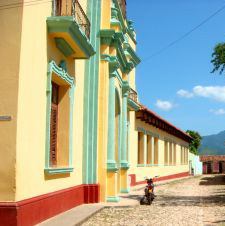 Hundreds of U.S. citizens, emboldened by the Obama administration’s pledge to improve relations with Cuba, have been openly traveling to the country in direct violation of the decades-old travel ban in hopes that they can force a repeal of the law.
Hundreds of U.S. citizens, emboldened by the Obama administration’s pledge to improve relations with Cuba, have been openly traveling to the country in direct violation of the decades-old travel ban in hopes that they can force a repeal of the law.
But can these tactics really work?
And what does it all mean for Americans who want to travel to Cuba?
Though organized groups such as the Venceremos Brigade and Pastors for Peace have been opposing the ban for years, they have stepped up their campaigns ever since Obama became President earlier this year.
A total of 270 Americans associated with the two groups have traveled to Cuba in the last few weeks and have been very vocal about their goals.
More Cuba news: Tour Operators Report Rise in Travel Bookings to Cuba.
For example, travelers with Venceremos (Spanish for “we shall overcome”) wore bright orange T-shirts with the name of their organization emblazoned on the front, and when they went through customs they clearly stated on their customs forms that they had been to Cuba.
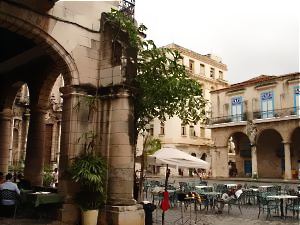 These groups—and other individuals—are hoping that their actions will force authorities to arrest or fine them. If they do get cited, their intent is to use the charge as a means to challenge the travel ban in court.
These groups—and other individuals—are hoping that their actions will force authorities to arrest or fine them. If they do get cited, their intent is to use the charge as a means to challenge the travel ban in court.
However, no one from either the Venceremos group nor any other group has been cited recently. Opponents of the ban may have to find another way to challenge it, because it may just be impossible to get cited or arrested in the current climate.
Mytchell Mora, a 32-year-old Los Angeleno, has been on his own personal crusade to get cited or arrested, but after four visits since 1999, he is still trying.
After his second trip to Cuba in 2000, Mora received a letter from OFAC asking him to say why he went to Cuba, how much he spent there, and who he visited. It threatened fines of $7,500 if he didn’t comply. Mora sent OFAC a reply advising them of his fifth amendment right against self-incrimination, and never heard from them again.
Peter’s take on the situation: The Travel Detective on Cuba Confusion.
“I didn’t think I was an activist until that letter came to my mailbox,” Mora said. “But then I started doing research on what my rights were, and decided to take this cause on.”
After his most recent visit last month, Mora blatantly flaunted souvenirs, a Cuba T-shirt and even a Cuban stamp in his passport, but customs agents at Los Angeles International Airport basically ignored him.
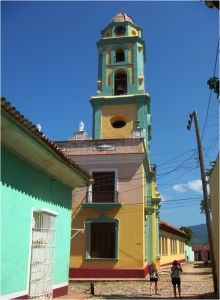 Mora and others think that the reason the authorities look the other way is because the government fears that the travel ban is unconstitutional and would never hold up in court.
Mora and others think that the reason the authorities look the other way is because the government fears that the travel ban is unconstitutional and would never hold up in court.
“No case from OFAC has been heard in any court as far as I know,” he said. “I, and all other Americans, should have the right to spend our hard-earned money wherever we please.”
Since the 1962 travel and trade embargo was implemented, Americans have been forbidden to travel to Cuba without permission from the Treasury Department, and are not allowed to spend money there. The only exceptions are Cuban-Americans who have immediate relatives in the country.
However, since Obama came to power, Cuban-American relations have lightened considerably. At the Summit of the Americas meeting last April the President said he wanted “a new beginning with Cuba,” and he eased Bush-era restrictions on family travel. Relatives can now visit Cuba once a year and spend up to $179 per day.
“I believe that Obama will live up to everyone’s expectations,” Mora said. “This law should never have been used as a negotiating tool for foreign policy.”
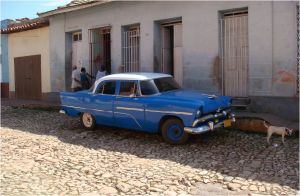 The majority of the seven authorized Cuba tour operators in the United States report that business has been brisk for the last few months, and one company has even upped its charter flight capacity by 150 percent for June.
The majority of the seven authorized Cuba tour operators in the United States report that business has been brisk for the last few months, and one company has even upped its charter flight capacity by 150 percent for June.
According to the Cuban government statistics office, 41,904 American visitors went to Cuba in 2008. The majority of these are Cuban Americans who legally obtained a license or approval from the U.S. government to enter Cuba by air and visit relatives there.
It’s nearly impossible to count the number of American tourists who go there without permission, but it’s estimated to be several thousand per year.
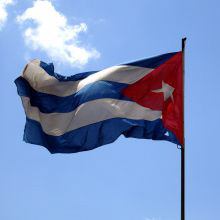 Legislation to completely remove the ban was introduced into Congress several months ago, but there is no word yet on its chances of passing. Some hard-line anti-Castro Congress members feel the lifting of the embargo would reward Castro, but most other feel that it is a failed policy.
Legislation to completely remove the ban was introduced into Congress several months ago, but there is no word yet on its chances of passing. Some hard-line anti-Castro Congress members feel the lifting of the embargo would reward Castro, but most other feel that it is a failed policy.
Travel industry insiders think that it’s just a matter of time before all travel restrictions are lifted, and are already taking steps to prepare for that day.
For example, Key West International Airport and Tampa International airport have both submitted requests to the Department of Homeland security to be designated as official ports of entry to Cuba once travel restrictions are removed. Key West airport already has much of the infrastructure in place, including a US Customs and Border Protection inspection station.
By Karen Elowitt for PeterGreenberg.com.
Related links: Los Angeles Times, Associated Press, PeterGreenberg.com, Associated Press, South Florida Sun-Sentinel
More related links:












